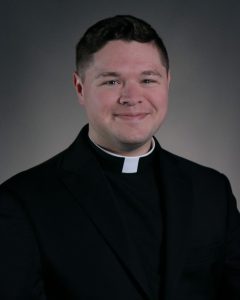The Archdiocese of Philadelphia rejoices to have 11 of her own priests appointed to be Archdiocesan Missionaries of Mercy. These priests are available to help facilitate pastoral initiatives that focus on conversion and divine mercy, with a particular attention given to the Sacrament of Reconciliation.
>>SEE RELATED: Archbishop Nelson J. Pérez Commissions Ten New Missionaries of Mercy
Missionaries of Mercy are priests – diocesan or religious – who have been commissioned by the Holy Father to give particular emphasis to the duty shared by all priests to “hear confessions and preach on behalf of and promote the Sacrament of Reconciliation.” They are to be an intentional, visible expression of the mercy of God, which is at the heart of the priesthood and all of Catholic life. In addition, Missionaries of Mercy have the authority, granted by the Holy Father, to pardon these sins reserved to the Holy See:
- Profaning the Eucharistic species by taking them away or keeping them for a sacrilegious purpose;
- Use of physical force against the Roman Pontiff;
- Absolution of an accomplice in a sin against the Sixth Commandment of the Decalogue;
- A direct violation against the sacramental seal by a confessor.
- The recording by means of a technical device of what the priest or the penitent says in a Sacramental Confession (whether real or simulated), or the divulgation of such a recording through the means of social communication.
CatholicPhilly presents the following interview with Reverend Matthew D. Brody, Pastor of Saint Richard Parish in South Philadelphia. Read our additional profiles on the new Missionaries of Mercy here.
***

Reverend Matthew D. Brody
Q: In what ways do you plan to integrate this special aspect of your priesthood into your daily activities and ministries?
Confession is an important event for every priest, but with the call to be a Missionary of Mercy, it should play a more central role in ministry. I would like to meet people within the parish and also outside of it. My plan is to be an icon of Christ in all aspects of my priestly life, not just in the confessional. I look forward to bringing people back to God through this sacrament.
Q: How to do you plan to carry out this work beyond your current assignment?
I plan to be more available within the parish, and to assist at other parishes with talks and penance. I want to use the gift that the Holy Father has given me, and give back as much as possible.
Q: In what ways can lay individuals live out the message of mercy in their everyday lives?
In daily interactions, we tend to forget to extend mercy and forgiveness. We miss opportunities to show mercy to others. Catholics are called to forgive and show mercy to those who harm them. Individuals can commit to being merciful and patient, and in turn, be a witness to Christ and truly see the face of Christ in our brothers and sisters.
Q: The Sacrament of Reconciliation communicates God’s infinite mercy to us. What would you say to those who have been away from confession and may be looking to make it a regular part of their faith journey again?
The biggest thing I would point out is that coming back to confession is not as scary as it seems. Some people are afraid of what their priest will say, or worry that they will be judged. Confession isn’t about anger and judgment. It’s a moment of great joy. “Do not be afraid,” and bear your soul. The priest is speaking for the Lord, not himself. Priests are not there to judge, they are there to share God’s mercy. Come. Take the first step and immerse yourself in the light of God’s mercy.
Q: What is your ultimate hope for your mission as an ambassador of mercy?
I want to know God’s mercy in order to share it with others more authentically. My place in this ministry is to bring more comfort, care, and compassion to the sacrament of confession. We are here to celebrate and God’s infinite love and forgiveness.
PREVIOUS: Missionaries of Mercy: A Q&A with Rev. Kenneth C. Brabazon
NEXT: Missionaries of Mercy: A Q&A with Msgr. Francis J. Depman


Share this story